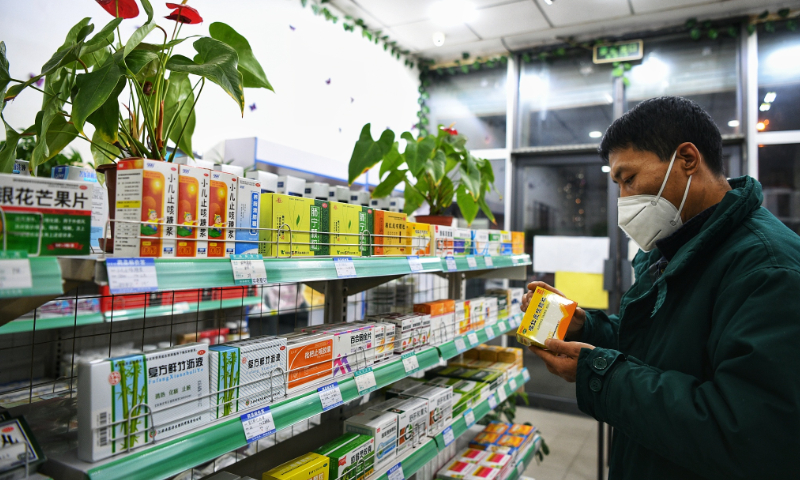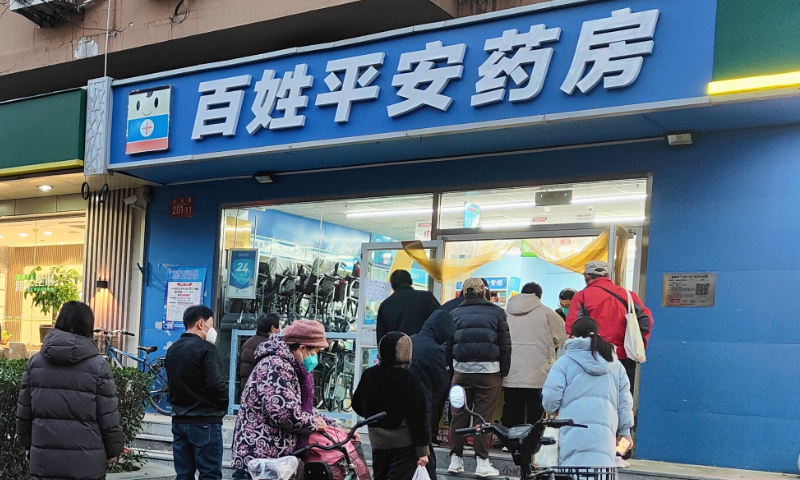China's top health authority encourages patients with mild COVID symptoms to stay at home for observation, treatment

A local resident is buying medicine for cough in a pharmacy in North China's Tianjin Municipality on December 6, 2022. Photo: VCG
The National Health Commission's official WeChat account "Health China" on Tuesday reposted a CCTV interview with Wang Guiqiang, director of the infectious diseases department at Peking University First Hospital, suggesting stratified treatment for COVID-19 patients, which means asymptomatic and mild patients can be observed and treated at home, while limited medical resources are reserved for those with severe and high-risk conditions.
At least a dozen cities across China have further adjusted and optimized epidemic control measures over the past few days, including scrapping the requirement for frequent mass nucleic acid testing and mandatory COVID-19 test results for taking public transportation.
In cities like Shanghai and Southwest China's Chongqing, reducing the frequency of nucleic acid testing or even canceling regular nucleic acid testing has become an important part of the optimization of epidemic prevention measures. Other places like Beijing and Guangzhou have also explored new measures such as allowing some people who test positive for COVID to be quarantined at home.
A total of 5,046 confirmed cases and 23,016 asymptomatic infections were reported in the Chinese mainland on Monday, with 42,481 confirmed cases still under medical observation and treatment nationwide, according to the National Health Commission (NHC).
China's epidemic prevention and control is facing a new situation and tasks as the coronavirus becomes less pathogenic, vaccination becomes more widespread and experience in prevention and control is accumulated, said Vice Premier Sun Chunlan at a symposium held at the NHC on November 30.
Many epidemiologists said such optimized measures aim to strike a better balance between COVID-19 control and ensuring people can live normal lives. Allowing home quarantine for some risk groups also relieves the pressure on already strained hospital resources.
Wang suggested that if COVID-19 patients have a fever and cough at home, they can use antipyretic and analgesic medicines, or take some traditional Chinese medicine or antiviral medicines under the guidance of doctors.
However, it is important to be wary of side effects or adverse reactions from medicines, and to avoid taking multiple medications together, Wang said, adding that antigen tests can also be carried out at home once symptoms of COVID-19 infection appear.
Wang also said there is no need to worry too much even if symptoms appear, and just to treat the illness as normally as a cold, but patients need to closely monitor their symptoms and seek medical attention if the situation gets worse, especially for those with underlying diseases.
Global Times

